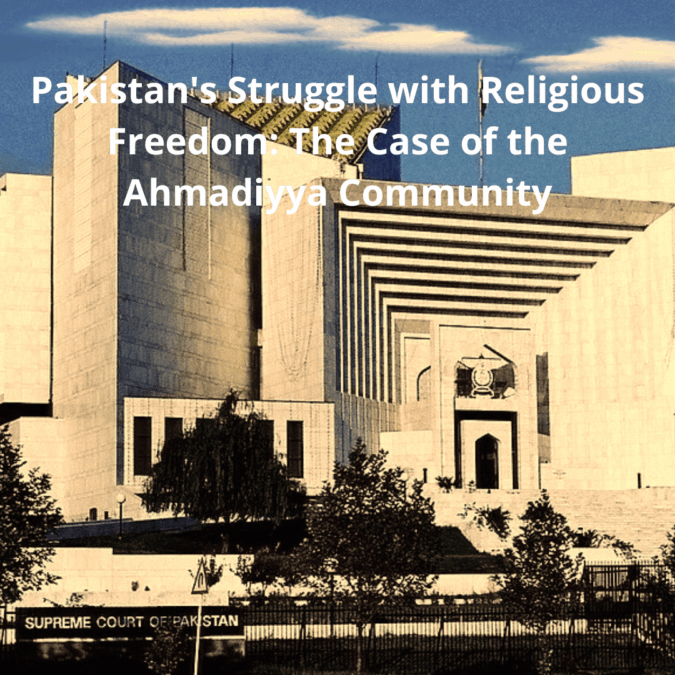In recent years, Pakistan has grappled with numerous challenges concerning religious freedom, particularly regarding the Ahmadiyya community. This issue has once again come to the forefront following a recent decision by the Pakistan Supreme Court defending the right to free expression of religious beliefs.
The Ahmadiyya community, a minority Islamic sect, has faced persecution and discrimination in Pakistan for decades. Despite considering themselves Muslims, Ahmadis are deemed non-Muslims under Pakistani law due to their belief in Mirza Ghulam Ahmad as a prophet after Muhammad. This theological difference has subjected them to severe social, political, and legal marginalization, including restrictions on religious practices, hate speech, and violence.
The recent ruling by the Pakistan Supreme Court represents a significant development in the ongoing struggle for religious freedom in the country. The court upheld the right of Ahmadis to self-identify as Muslims and express their beliefs without fear of prosecution, affirming the principles of freedom of religion and expression enshrined in Pakistan’s constitution.
However, despite this legal victory, challenges persist for the Ahmadiyya community. Deep-rooted societal prejudices and institutionalized discrimination continue to pose threats to their safety and well-being. Extremist groups often target Ahmadis with impunity, inciting violence and spreading hatred against them. Furthermore, discriminatory laws, such as Ordinance XX, which prohibits Ahmadis from practicing Islamic rituals or identifying as Muslims, remain in force, perpetuating their second-class status.
The international community has also raised concerns about religious freedom in Pakistan, urging the government to take concrete steps to address the plight of religious minorities, including the Ahmadiyya community. Organizations such as Human Rights Watch, Amnesty International, Internantional Human Rights Committee and CAP Freedom of Conscience have called for the repeal of discriminatory laws and the protection of minority rights.
In response to mounting pressure, there have been some positive developments in recent years. Pakistan’s government has expressed commitment to safeguarding the rights of religious minorities and combating religious intolerance. Initiatives such as the National Commission for Minorities and efforts to promote interfaith harmony reflect a growing recognition of the importance of religious pluralism and tolerance in Pakistani society.
Nevertheless, genuine progress requires more than just legal reforms; it demands a fundamental shift in societal attitudes and the dismantling of entrenched discriminatory practices. It necessitates fostering a culture of inclusivity, respect, and understanding where all citizens, regardless of their religious beliefs, can live freely and without fear.
As Pakistan navigates its complex socio-religious landscape, the case of the Ahmadiyya community serves as a litmus test for the nation’s commitment to religious freedom and pluralism. Upholding the rights of Ahmadis not only strengthens the fabric of Pakistani democracy but also reaffirms the country’s founding principles of equality, justice, and tolerance for all its citizens.







